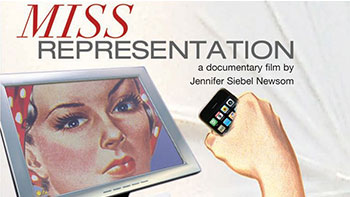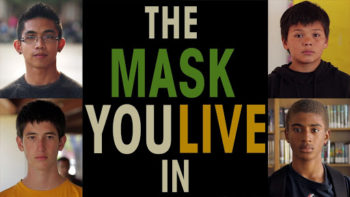Recently there was a national study: male film critics outnumber female film critics by more than 65 percent. This came as no surprise to me since I have been making a living in this profession for well over 25 years and still feel the loneliness of my gender. I often wonder if it is the “men don’t like smart women” syndrome? “Just be quiet and be pretty.” “You look so much better when you smile.” Back in the seventies, I was among the first women Associate Directors at a TV network, told that no women ever got this prestigious job because men did not like to accept orders from a female. Perhaps it is the same with our opinions.
It is difficult today for me to find a young woman to mentor in the field of film criticism, though every time I find a woman of any age doing this work, I read or listen with special interest. One of the first books I devoured about movies was written by my favorite film critic Molly Haskell. Her seminal work From Reverence to Rape: The Treatment of Women in the Movies still sits proudly on my bookshelf. Rob Carver’s insightful documentary What She Said: The Art of Pauline Kael (2018) has us celebrate this controversial but groundbreaking critic. Of course, there have been many others whose shoulders I stand on, as far back as the 1920’s.
When the dismissive term “chick flick” became a part of our vernacular, I was outraged. Does that mean we can only appreciate romantic comedies, that war or adventure films are off limits to us? Can men not find their emotional centers with dramas or “weepies.” I could not find anyone to go along with me on this, and to this day will not use this offensive category in my writing or broadcasting.
The other night I was watching a Bette Davis classic: Now, Voyager. George Cukor directed the story of a woman who transitions from fearful to confident, falling deeply in love along the way. Her change from powerless to powerful is appreciated by both men and women. My husband, a war movie fan, sat down and joined me as the waves of great filmmaking swept over us. Davis’s character crossed all gender lines, as does Auntie Mame or Norma Desmond. Will young men now only see a certain genre of film because it is a “chick flick” to see anything else? This idea is satirized in Nora Ephron’s Sleepless in Seattle, but the truth is not as funny.
Good movies are good movies, and gender has nothing to do with it. From Field of Dreams to Saving Private Ryan, from I Remember Mama to Gigi, we all celebrate and appreciate great cinema. All of us who review movies have our special passions. If a film has an LBGTQ theme (Priscilla Queen of the Desert, Pride, The Celluloid Closet) I will do my best to bring it to everyone’s attention. When a movie is made, all too rarely, about an amazing woman (Harriet, Frida, Harold and Maude, Madame Curie) I am front and center to critique it. There are powerful women in Hollywood today who have their own production companies. It is rewarding when someone like Reese Witherspoon reminds us that she is doing what she said in her Oscar acceptance, quoting June Carter: “I’m just trying to matter.”
I would tell my sisters in any field of endeavor: have opinions. Back up that critical thinking with reasoning and supporting arguments. Find that niche that makes you different and worth listening to, make it fun. I’m not a female film critic, I am a movie critic. A showbiz critic. I hope someday there will be more of us.
Jan Wahl is a two-time Emmy winning producer, longtime member of the prestigious Director’s Guild of America, entertainment reporter, and film critic—wearing many hats—based in San Francisco. The Women in Film and Television award winner’s reviews appear in newspapers, radio, and on television across the Bay Area. Over the course of her career, Jan Wahl has interviewed them all from Gregory Peck to Ben Affleck and Meryl Streep to Renee Zellweger.
Take Action! Help close the gender parity gap and support women film critics. Read more by Jan Wahl at www.janwahl.com.




